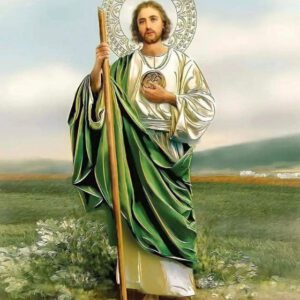Today is the thirty-fourth Sunday of Ordinary Time and last of the liturgical year. Whereas ‘thirty-four’ is just another number, ‘last’ might arouse emotions. Hence, after experiencing a year of highs and lows, or a spectrum of emotions produced by the liturgical seasons, it is time we declared Our Lord Jesus Christ as the king of our minds and hearts. Which could be another way of looking at Christ as Universal King.
To many today it may feel outdated and pointless to think in terms of kingship. That is because those with vested interests have led us to question that old and deep-rooted tradition. It is undeniable, however, that kingship goes back to the Old Testament where God was keen on a godly leader to shepherd His people. The choice of David who was a shepherd in the literal sense brought alive the concept of a later shepherd-king who would be the Messiah. But particularly in our day and age, the idea is not to be confined to the spiritual realm but rather to be contrasted with phoney leadership in the secular realm.
From the First Reading (Ezek 34: 11-12, 15-17) it is amply clear that a true king ought not to be oppressive or tyrannical (as the kings of Israel indeed were, in the days about which Ezekiel writes); on the contrary, a good king ought to be sincerely interested in the welfare of his people, and like a shepherd, zealously guard his flock, of which Psalm 23 is the epitome. The Lord says that He Himself will seek out and rescue His scattered sheep. He will “feed them in justice” and, very importantly, “judge between sheep and sheep, rams and he-goats”.
That feeds into the Gospel idea of the Last Judgement as depicted in the last of the trilogy of parables (Mt 25: 31-46) that Our Lord related before He walked up to Calvary. The Lord announces that “before Him will be gathered all the nations, and He will separate them one from another as a shepherd separates the sheep from the goats, and He will place the sheep at His right hand, but the goats at the left.”

As in the parables read last two Sundays, those who by their acts of love (corporal works of mercy) towards the little ones please the Lord will be rewarded: “inherit the kingdom prepared for you from the foundation of the world”. On the other hand, judging between sheep and sheep, those who have not proved worthy of God will be cursed “into the eternal fire prepared for the devil”. Strong words that we cannot afford to pass over.
In short, if the unrighteous will go away into eternal punishment and the righteous into eternal life, it befits us to consider whether we are ready for the day of reckoning – whose time we do not know! Are we prepared to set our eyes on Heaven and sacrifice some things on earth? Now is the time and the moment to decide. This Advent, only a profound spiritual preparation will qualify us to receive the Lord God of Hosts at Christmas.
How well the Second Reading (1 Cor 15: 20-26, 28) rewinds to the time when Adam, who brought death to humankind, and races back to when Jesus the New Adam brought us new life! St Paul was talking about the resurrection of the dead, about all that stands depleted and will be vivified by the Son of God. It is not physical death alone but the death of our consciences that is at stake and which only the Lord can heal.
Finally, behold the history of the future: Jesus, after destroying every rule and every authority and power, and having reigned until He put all His enemies under his feet, He will destroy death and deliver the kingdom to God the Father. And then, “when all things are subjected to Him, then the Son Himself will also be subjected to Him who put all things under Him, that God may be everything to everyone”.
Today we are given a foretaste of a glorious end that will herald a splendorous new beginning, through Jesus Christ Our Lord and Universal King.